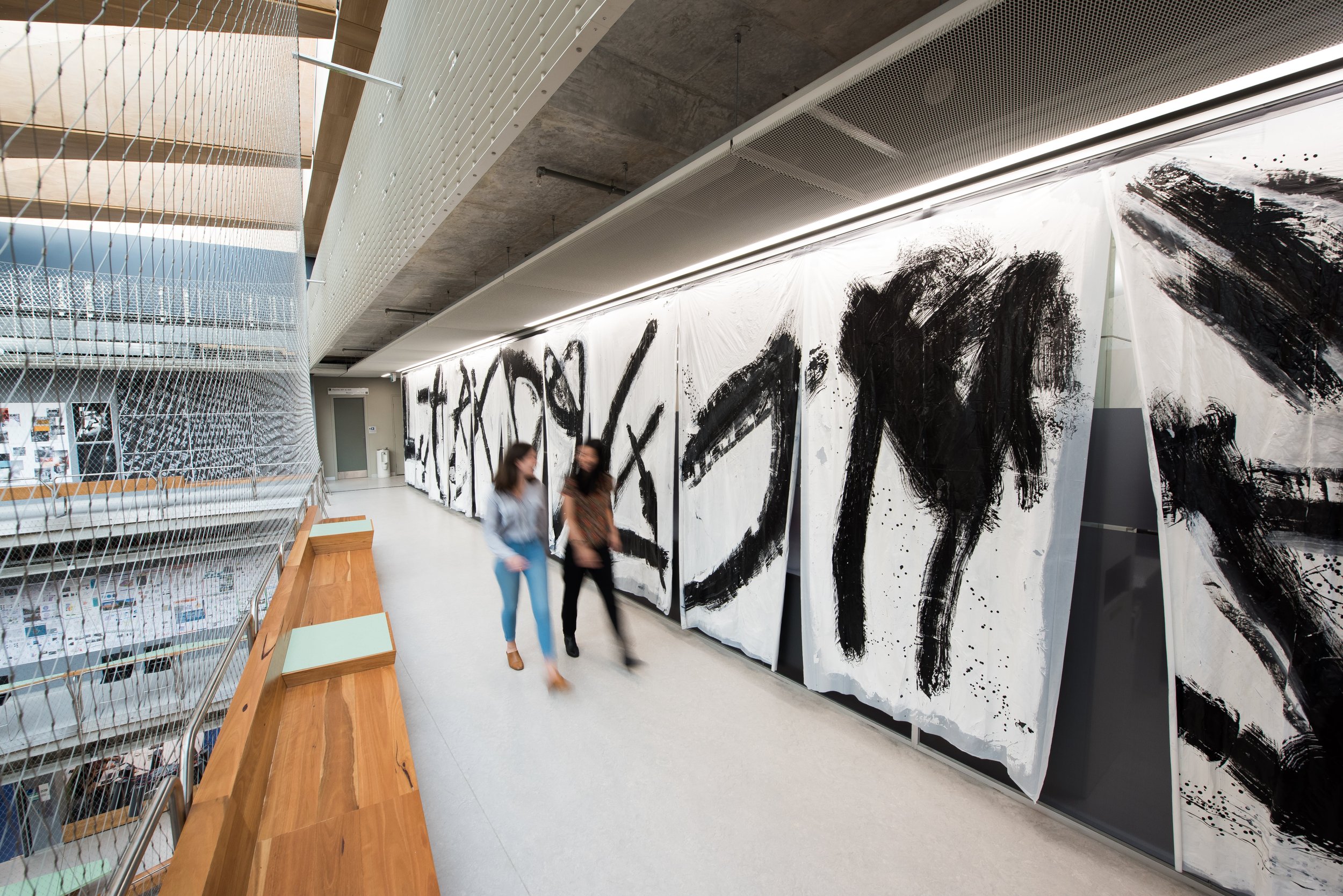Sustainability Plan 2030
The University of Melbourne’s Sustainability Plan 2030 (SP2030) was released in 2022. In implementing SP2030, we will deliver on the commitments of the University’s Sustainability Charter, while ensuring a sustainable path towards achieving the overarching goals set out in the University’s institutional strategy, Advancing Melbourne. The Plan defines our sustainability ambitions over three intersecting domains, reflecting the University’s core purpose and commitment to our people, our partners, and our place in the world.
In the second half of 2022, we started work on action planning to reach our sustainability targets. In this report, we share our sustainability progress under each domain outlined below. In the coming years we will build on these foundations, identifying opportunities to embed sustainability in business processes and strategies, and implementing initiatives that reflect the ambitions of SP2030.

DOMAIN 1
Amplifying action through campus and communities
OUR COMMITMENT
This is the critical decade for climate action. If we are to successfully limit climate change and build a more sustainable world, it is essential to effectively mobilise our communities and resources to accelerate this process.
At the University, this means integrating our sustainability efforts across campus operations, research, teaching and learning, and engagement with partners to accelerate progress.
We are committed to amplifying our collective sustainability impact and demonstrating leadership in climate action. We have expanded our carbon inventory to include more indirect (Scope 3) emissions to better address the full impact of our activities, and are on track to achieve carbon neutrality by 2025.
Through our living laboratories, we are fostering collaboration between students and staff to co-create solutions and experiential learning opportunities that engage with the social, environmental and economic dimensions of sustainability. We are supporting the University community to enhance our collective sustainability knowledge and practices.
Integrating these efforts enables us to maximise our overall impact.

DOMAIN 2
Mobilising knowledge for action
OUR COMMITMENT
The University is committed to advancing and developing expertise across the breadth and depth of disciplines. We recognise the unique role we play in bringing people together to understand and solve sustainability challenges, and seek to do this across all activity areas.
We are committed to advancing recognition of Indigenous knowledge systems, and to further strengthening our relationships with Indigenous peoples and partners.
Our students will develop deep disciplinary and interdisciplinary perspectives on the complex social and ecological challenges of our era, and will learn how to support sustainability throughout their careers.
Sustainability research conducted at the University informs climate action globally, including through contributions from our researchers to the Intergovernmental Panel on Climate Change, and through the work of our research institutes. We are working to ensure that all University research activities are undertaken in a sustainable manner.
Furthermore, our commitment to sustainability is embedded in all new and existing community partnerships, in Melbourne, across Australia and internationally.

DOMAIN 3
Walking the talk in our operations
OUR COMMITMENT
The current effects of global climate, biodiversity and waste crises are unprecedented in human history, requiring us to develop new practices and technologies to prevent escalating damage to human and ecological systems.
The University is uniquely placed to demonstrate innovative sustainability solutions in our operations, providing an example for others to follow. We are embedding sustainability across the breadth of campus operations, pioneering novel approaches to waste reduction and management, procurement, biodiversity, water and transport.
We are committed to effectively managing climate risk, ensuring business continuity and supporting our staff, students, and the communities in which our campuses are located, to cope with the impacts of climate change.



